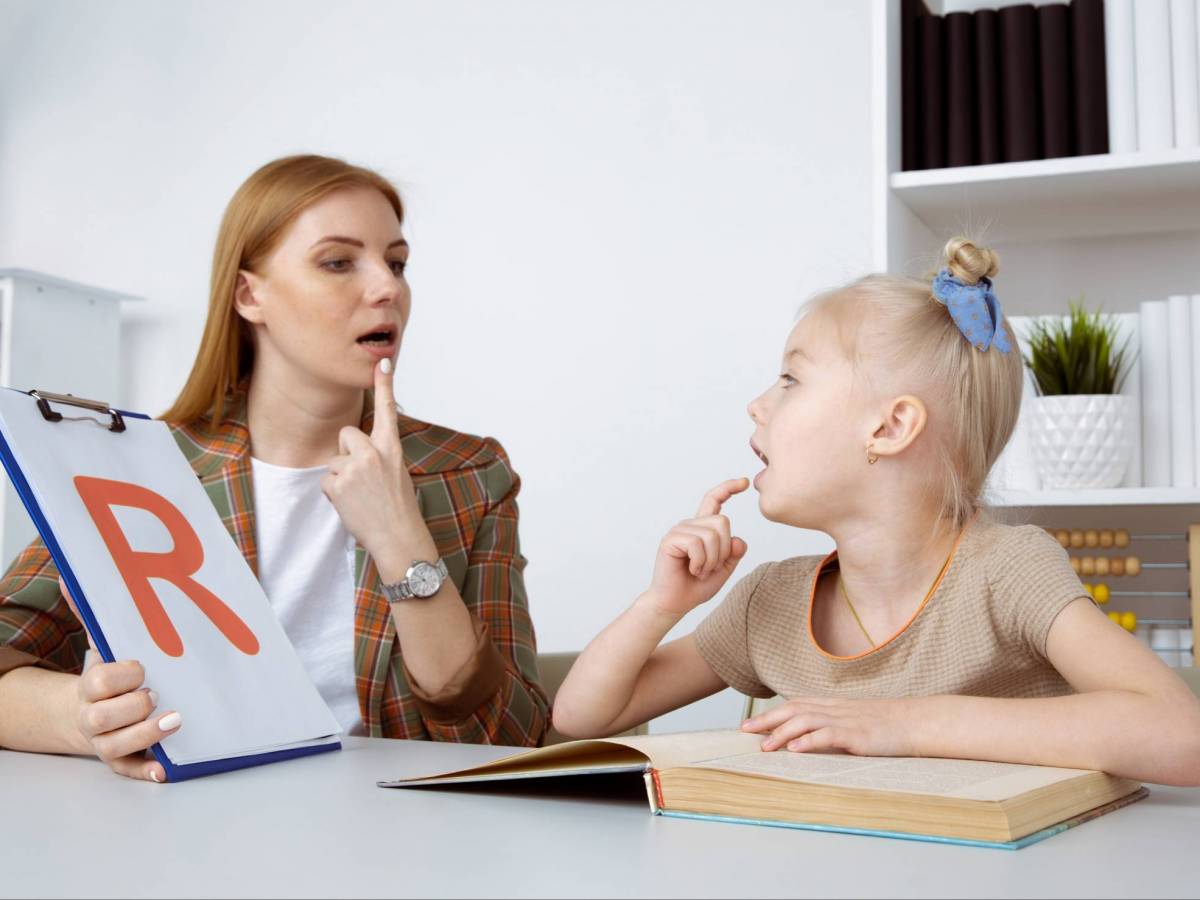Rotacism is the selective dyslalia of the phoneme (R) in all its variants, that is, a problem when it comes to articulating the sound of the r. It can occur in both children and adults and affects both the soft and strong /r/ sound, in words with direct syllables in initial or middle position such as rema, cara or carro, in inverted syllables, tree and in symphonies (two consonants followed and a vowel) train.
Keep in mind that r is one of the most difficult letters to acquire and therefore one of the last to learn to pronounce.
Not pronouncing the letter r correctly is not considered a concern until the child is 5-6 years old. It is from this age when it is recommended to go to a speech therapist to help you and see what is the cause of the lack of pronunciation of said phoneme.
The fact that a child does not pronounce the r is not of great importance, that is, it does not imply that there is some kind of delay or affectation on a psychological level, although it is true that when children are older and are aware that they do not pronounce certain phonemes properly, they can cause frustration due to the inability to say it well, since this can sometimes be a cause of ridicule among their peers and affect their self-esteem.
Rotacism can be caused by two main factors:
- On a physical level
- Lingual frenulum problems; that this is short and cannot raise the tongue due to physical limitation.
- High-arched palate: higher and narrower palate, so the tongue cannot be correctly supported on it for the pronunciation of the /r/ phoneme.
- Hypotonicity: lack of muscle tone in the oro-oral organs (lips, tongue, masseters…) and lack of control over these organs.
- At the functional level:
- Lack of strength and coordination in the breath.
- Lingual malocclusion: poor positioning of the tongue, normally it is advanced and touches or exceeds the teeth, so there is no vibration.
Treatment of rotacism in both children and adults is 99% effective. The activities that are normally carried out to solve it are very simple exercises of re-education of the point and mode of articulation of said phoneme.
To achieve this vibration of the tongue, the point of articulation and the breath must be coordinated. Therefore, the first step in acquiring /r/ is to work on breathing. Simple blowing exercises will be done, such as blowing out candles, inflating balloons, playing soccer games moving small balls of paper, wood or marbles using only the blowing. You can also work with mills, a whistle, a flute or any other wind instrument.
Lingual praxis, are simple exercises in which you work with the tongue so that it acquires a greater tone and complete control over it.
Many times children do not have the strength or are not able to keep their tongue in one place long enough and that is why it slips away and the sound is not made correctly.
An important exercise to solve rotacism is to be able to click the tongue, normally they are told that they are going to simulate horse steps. With this simple exercise, we can verify that the tongue is capable of resting on the palate of the mouth and that it has the strength to support and maintain it.







